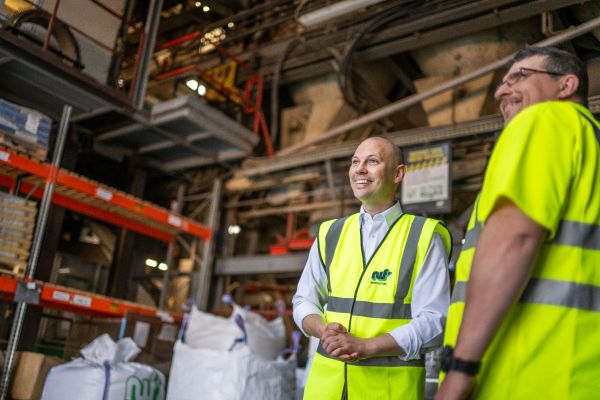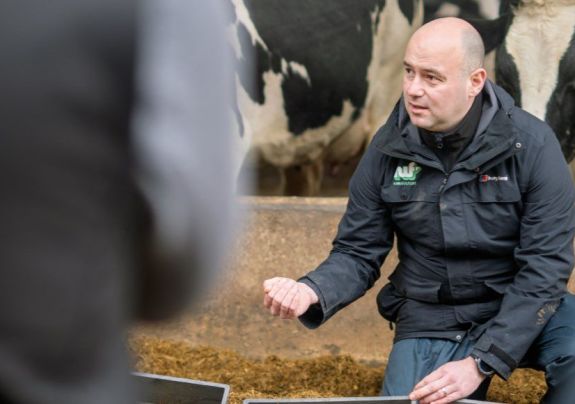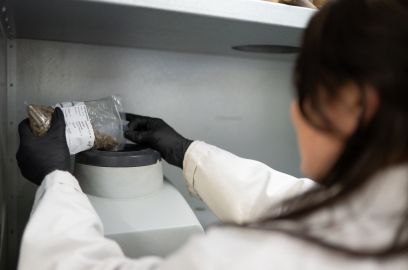NWF Feeds has grown to be a leading national supplier of ruminant animal feeds to over 4,400 customers in the UK.
546,000
Tonnes
256
People
38
Trucks
3
Mills
Our Feeds locations
Review of the year
Total feed volume increased by 9.4% to 546,000 tonnes (2024: 499,000 tonnes). This reflected the consistently positive milk price along with strong market prices for both beef and lamb. As a result, ruminant farmers were incentivised to maximise yield and our nutritional advisors were able to support them in achieving this goal. The overall ruminant market volume increased by 6.2%, according to DEFRA data.
Across the year there were very stable and comparatively low commodity prices with a basket of commodities1 only moving within a range of 6.2% in the year (prior year 15%).
Revenue was higher at £204.6 million (2024: £195.1 million), reflecting the increase in volume which was partially offset by the lower commodity prices. Headline operating profit was £3.6 million (2024: £2.6 million) because of the increased volume, strong margin management and lower production costs.

During the year we began to participate in a Government scheme to support energy intensive industries through lower electricity costs. This resulted in a £0.6 million reduction in the production cost of the business which is expected to continue whilst the Government scheme remains in place.
The extension of the product range through the investment in moist feed production has gone well with customer demand exceeding plan. This £0.8 million investment involved the installation of new equipment into an existing Group facility, which enabled a cost-effective way for the Group to develop an additional revenue stream through the sale of moist feed to existing customers who had previously been buying the product from third party suppliers.
The average milk price for the year of 44.2p per litre compared to an average in the prior year of 38.0p per litre. The peak milk price in the year was 47.2p per litre compared to 39.2p per litre in the prior year. At the end of the financial year the milk price was stable at 43.8p per litre. UK milk production was 0.7% higher at 12.4 billion litres (2024: 12.3 billion litres).
Feeds is the second largest ruminant feed provider in the UK and has a very broad customer base, working with over 4,400 farmers across the UK. This base, and the underlying robust demand for milk and dairy products, results in a reasonably stable overall demand for ruminant feed deliveries in most market conditions.
1. A basket of commodities consists of the weighted average raw material spot price for 12 standard ingredients of a basic ruminant diet.



